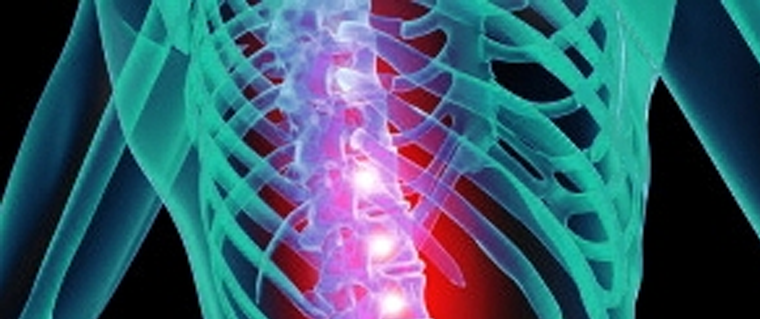
Case Study
Computer modelling systems to predict device success
Date: May 11, 2013
Accurately predicting the success of spinal implants prior to lengthy clinical trials will make the development of new medical devices quicker and more cost effective.
A Proof of Concept award from the Medical Technologies IKC has enabled Researchers at the University of Leeds to create a novel computer modelling system that will ultimately enable companies to evaluate the performance of new devices or implants being developed for the lumbar area of the lower back.
According to the World Health Organisation, low back pain affects over 80% of people at some point in their life, and is the most common cause of disability among young adults.
“This modelling technology could have a huge benefit for medical device companies working on new treatments for this area of the spine,” says Dr Ruth Wilcox, Professor of Biomedical Engineering. “It’ll enable them to more easily predict the behaviour of their device, depending on its environment. For example, some devices might behave very differently in an older person, where the surrounding tissue and bone may have degraded.”
Working in collaboration with software company Simpleware Ltd researchers from the Institute of Medical and Biological Engineering took high resolution images of individual vertebra. These were drawn from human donations, and also more inventive sources such as museum selections of dried bone specimens, to exemplify different people of different ages. These high quality images were then converted into models that can be manipulated to show the effects on the spine of various implants as well as represent the differences between patients based on age, physical condition, weight and other variables.
The process could also potentially benefit the regulation of medical devices. Currently companies must prove that a device works under standardised conditions – but it is anticipated that this will change with the expectation that companies will need to prove their device works on many different patients, not just the average person. Under these circumstances the modelling project with Simpleware could be ideal for a company to prove their device’s performance.
Simpleware Managing Director, Philippe Young, says: “It’s been a great experience working with the University of Leeds. We have been given the opportunity to use our software in a different context that will create valuable new tools for medical device companies, and ultimately bring a benefit to patients”.
Back to Case Studies
